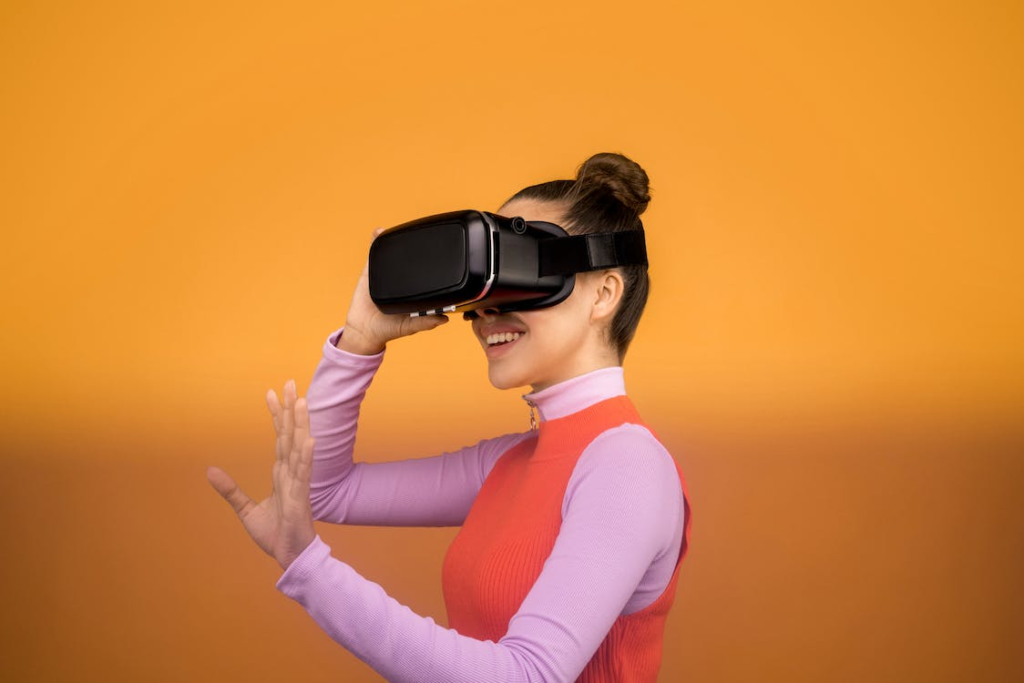The metaverse has emerged as a fascinating concept, captivating the imagination of individuals and industries alike. With its vast potential for immersive experiences and virtual interactions, the metaverse has opened up new avenues for technological advancements. The key drivers of the metaverse’s development are augmented reality (AR) and virtual reality (VR) technologies. In this article, we will explore the role of AR and VR app development in shaping the metaverse and its implications for various sectors.
As technological innovations revolutionize the digital landscape, the metaverse has gained considerable attention. The metaverse can be described as a virtual realm where users can interact with one another and digital entities in a three-dimensional space. It offers a blend of virtual and physical reality, enabling users to engage in various activities, including gaming, socializing, and business transactions.
Understanding the Metaverse
The metaverse can be defined as a collective virtual shared space created by the convergence of virtually enhanced physical reality and physically persistent virtual reality. It gives users a sense of presence and enables them to interact with digital objects and other users in real time.
Evolution of the Metaverse
The metaverse concept has evolved into science fiction novels and movies. However, recent AR and VR advancements have brought the metaverse closer to reality. Companies and developers are now exploring ways to create immersive and interactive experiences within this virtual realm.
Role of AR and VR in the Metaverse
What are AR and VR?
Augmented reality (AR) refers to integrating digital information or virtual objects into the real world, enhancing the user’s perception and interaction with their surroundings. On the other hand, virtual reality (VR) creates a completely immersive and simulated environment, blocking out the real world and transporting users to a virtual realm.
Integration of AR and VR in the Metaverse
AR and VR technologies play a crucial role in shaping the metaverse by providing users with enhanced sensory experiences and enabling seamless interactions. Through the integration of AR and VR, the metaverse can offer users a more immersive and engaging environment, blurring the boundaries between the virtual and physical worlds.
Benefits of AR and VR in the Metaverse
Enhanced Immersive Experiences
AR and VR technologies bring a new level of immersion to the metaverse, allowing users to experience digital content more realistically and interactively. Whether exploring virtual worlds or interacting with virtual objects, AR and VR enhances the metaverse’s sensory aspects, making it more captivating and engaging.
Real-Time Interaction and Collaboration
One of the key advantages of AR and VR in the metaverse is the ability to interact and collaborate with other users in real time. Through avatars and virtual representations, users can communicate, socialize, and collaborate on various activities, creating a sense of presence and shared experiences.
Opportunities for Businesses and Industries
AR and VR technologies in the metaverse open numerous opportunities for businesses and industries. From virtual showrooms and immersive training simulations to virtual conferences and remote collaboration, AR and VR enable new forms of engagement and unlock innovative business models.
AR and VR App Development in the Metaverse
Importance of AR and VR App Development
AR and VR app development play a vital role in harnessing the full potential of the metaverse. These apps serve as gateways for users to access the metaverse, providing immersive experiences and functionalities. They enable users to explore virtual environments, interact with digital objects, and connect with other users.
Applications of AR and VR in the Metaverse
The applications of AR and VR in the metaverse are diverse and span various industries. In gaming, AR and VR enable players to experience virtual worlds more realistically and interactively, enhancing their gameplay. In education, AR and VR facilitate immersive learning experiences, allowing students to explore virtual environments and interact with virtual objects.
Choosing the Right VR App Development Company
Research and Evaluation
When selecting a VR app development company for metaverse projects, thorough research and evaluation are crucial. Assess the company’s portfolio, expertise, and previous experience in developing AR and VR applications. Look for projects similar to your requirements to ensure they can deliver the desired outcomes.
Expertise and Experience
An experienced VR app development company will deeply understand the metaverse and its technical requirements. They should possess AR and VR technologies expertise, ensuring they can create immersive and high-quality applications that align with your objectives.
Customization and Scalability
Consider the company’s ability to customize and scale the application based on your needs. The metaverse is a dynamic environment, and your app should be adaptable to evolving technologies and user demands. Ensure that the company can provide tailored solutions and future-proof your application.
Client Reviews and Testimonials
Reading client reviews and testimonials can provide insights into the company’s reputation and the quality of its work. Look for positive feedback and testimonials highlighting the company’s professionalism, deadline adherence, and customer satisfaction.
Future Trends and Challenges
Advancements in AR and VR Technology
As AR and VR technologies advance, the metaverse will evolve further. Improved graphics, haptic feedback, and real-time simulations are just a few examples of the exciting developments. These advancements will enhance AR and VR applications’ immersive experiences and capabilities in the metaverse.
Ethical Considerations
The metaverse also brings about ethical considerations that need to be addressed. Data privacy, security, and inclusivity should be carefully managed to ensure a safe and inclusive metaverse experience for all users.
Overcoming Technical Limitations
While AR and VR technologies have made significant progress, technical limitations still must be overcome. Challenges such as motion sickness, device compatibility, and processing power constraints must be addressed to provide seamless and accessible experiences for all users.
Conclusion
AR and VR app development play a pivotal role in shaping the metaverse by offering immersive experiences, enabling real-time interactions, and unlocking new possibilities for businesses and industries. Choosing the right VR app development company becomes crucial to harness its full potential as the metaverse evolves. With advancements on the horizon and ethical considerations in mind, the metaverse promises to transform how we interact, collaborate, and engage in virtual environments.


2 thoughts on “The Role of AR and VR App Development in the Metaverse”